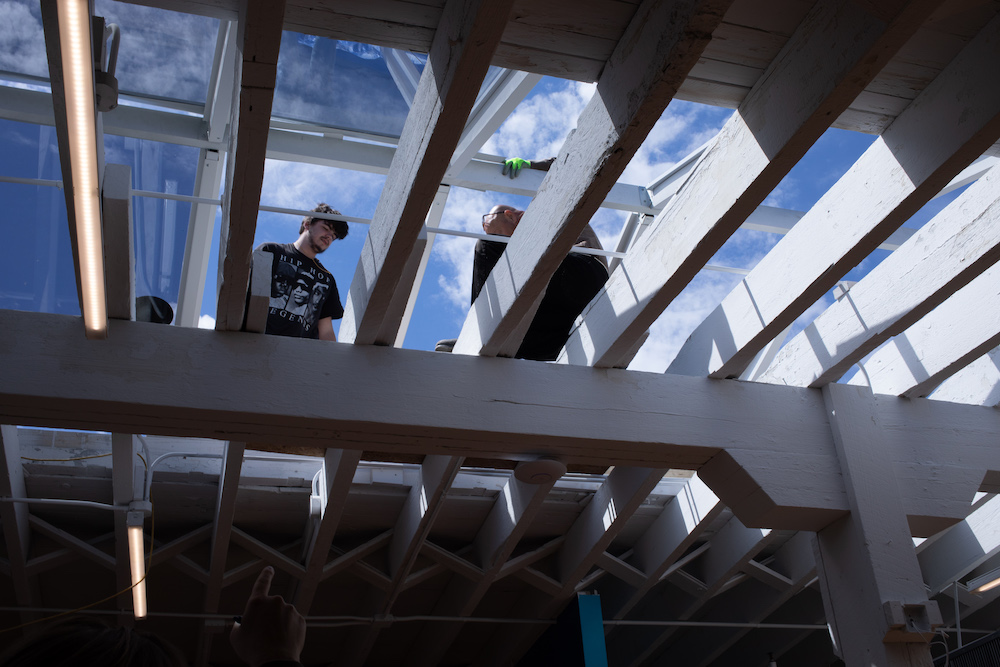
A good understanding of the lien waiver rules in your state is crucial to protecting your rights to payment; and the state of Georgia is no exception. Let’s take a look at the lien waiver regulations in Georgia and how a recent Court of Appeals decision has massive implications on a contractor’s rights to payment.
August 2020 update: In response to this court decision, the Georgia Governor enacted changes to the lien waiver statutes effective 1/1/2021
Georgia’s unique lien waiver system
Before we dive too deep, let’s take a moment to quickly review how lien waivers work in Georgia. The reason being that the lien waiver scheme is particularly unique compared to other states. Although the process is beneficial to lien claimants, it does offer some interesting nuances that led to the current problem.
How Georgia mechanics lien waivers work
First and foremost, Georgia is just 1 of the 12 states that provide statutory lien waivers. While most of these states provide 4 forms (conditional progress, conditional final, unconditional progress, & unconditional final), Georgia only provides a progress payment lien wavier and a final payment lien waiver which are technically both conditional and unconditional.
Once a Georgia lien waiver is executed, a 60-day clock begins to tick. The waivers start out as conditional waivers. Meaning, at least at the start, the lien waiver won’t waive lien rights until payment is received. However, Georgia mechanics lien waivers will automatically convert to unconditional after 60 days.
Lien claimants can stop this “conversion,” though. If a Georgia mechanics lien claim is filed during the 60 day period, or if an Affidavit of Nonpayment is filed before 60 days is up, then the waiver won’t unconditionally waive lien rights.
Why would someone file an Affidavit of Nonpayment?
Having the option allows the contractor to choose to file a lien for the unpaid balance, or file an Affidavit of Nonpayment to retain their lien rights. You may be wondering why someone would elect to file an Affidavit of Nonpayment as opposed to a mechanics lien claim? Well the contractor may not be ready to either (a) spend the money to file a lien claim yet, or (b) may not want to escalate the dispute to that level. On the other hand, if dealing with a final payment lien waiver, caution should be taken. As filing an affidavit will not affect or extend the filing deadline. So deciding not to file a lien claim in this scenario could be risky.
Recent case raises the stakes
Now that we’ve reviewed the Georgia lien waiver process, it seems pretty straightforward, right? Well, a recent Court of Appeals case in Georgia recently made a decision that can seriously affect a contractor’s ability to recover payment. Although the lien procedures and associated deadlines remain the same, failing to take action within the 60-day deadline can have some severe implications.
ALA Construction Services v. Controlled Access, Inc.
The case in question is ALA Construction Services, LLC v. Controlled Access, Inc.
In that case, Controlled Access, Inc. (Controlled Access) executed two “Interim Waiver and Releases,” for a total of around $13,000. However, ALA Construction Services, LLC (ALA) never ended up paying those invoices. Unfortunately, Controlled Access failed to either file an affidavit of nonpayment, nor did they file a mechanics lien claim within the 60-day period.
Project Snapshot
- Owner: Sugarhill Overlook Townhomes
- General Contractor: ALA Construction Services, LLC
- Subcontractor: Controlled Access, Inc.
Controlled Access, realizing that they waived their lien rights, instead decided to file a lawsuit based on breach of contract; as they clearly had a contract for the payment of services and ALA breached that contract by refusing to pay. ALA filed for a motion of summary judgment, the trial court denied summary judgment and decided in favor of Controlled Access, awarding a judgment of $17,666.78. ALA subsequently appealed the decision.
The appeals court decision
The appeals court reversed the denial of summary judgment. They based their decision on how the lien waiver statute should be interpreted. There are two specific provisions, both contained within O.C.G.A. §44-14-366(f):
(1) When a waiver or release… shall be binding against the claimant for all purposes, subject only to payment in full of the amount set forth in the waiver and release.
(2) Such amounts shall conclusively be deemed paid in full upon the earliest to occur of: (A) Actual receipt of fund; (B) Execution by the claimant of a separate written acknowledgement of payment in full; or (C) Sixty days after the date of the execution of the waiver and releases, unless prior to the expiration of said 60 day period the claimant files a claim of lien or files in the county in which the property is located an affidavit of nonpayment… (emphasis added).
Controlled Access argued that the release of a lien releases the lien, and it does not release the underlying debt. But the court rejected this argument. However, the judge decided to interpret this language strictly.
Taking all of these provisions into account, the court declared that “binding for all purposes” and “conclusively deemed to have been paid in full” meant just that; binding for all purposes. Not just the purpose of preserving the right to file a lien on the property. And consequently, this meant that the debt was deemed to be paid in full and no longer recoverable.
Impact of this decision
This decision doesn’t change any of the procedural requirements to securing mechanics lien rights. But the impact is clearly evident. Failing to file an affidavit of nonpayment or filing a mechanics lien claim before the 60-day deadline will essentially extinguish the underlying debt. If this holding stands, it will impose additional, affirmative actions for contractor to preserve both lien rights and contract claims for nonpayment. This is a serious departure from how mechanics lien waivers are commonly understood.
Mechanics lien rights should be distinct from other causes of action
Mechanics lien rights are meant to be supplementary to other causes of action such as a breach of contract claim. They’re supposed to benefit and protect claimants. Take Florida lien law as an example; Fla. Stat. §713.30 entitled “Other actions not barred” clearly draws this distinction be stating that the mechanics lien provisions are cumulative to other existing remedies and nothing contained in this part shall be construed to prevent any linear or assignee under any contract from maintaining an action thereon at law… and shall not prejudice his or her rights under this part. And many other state lien laws include similar provisions.
Many times when contractors fail to send a preliminary notice, or otherwise fail to secure their mechanics lien rights, they can still rely on traditional causes of action such as breach of contract to ensure their right to payment. Mechanics lien rights are meant to supplement traditional contract rights, and shouldn’t be intertwined with them.
Bottom line
As long as this decision is upheld, construction companies should closely monitor their deadlines when it comes to lien waivers. Missing this deadline could result in contractors losing the right to bring a breach of contract claim. In addition to timing, construction companies should look into obtaining a full legal property description at the outset of every project, as this information is required for both the Affidavit of Nonpayment and a Mechanics Lien claim.
Additional resources

